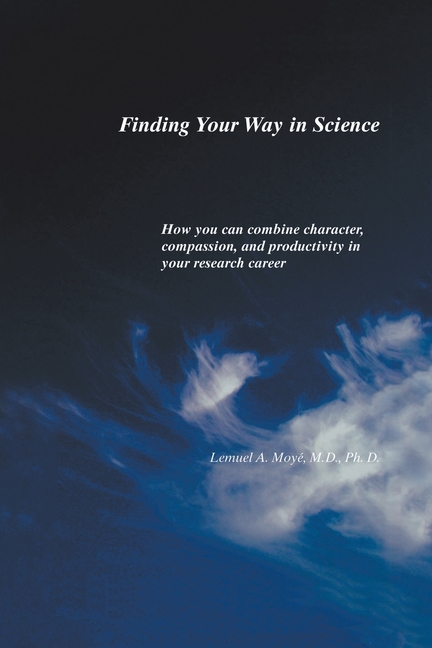
Finding Your Way in Science
(Depends on publisher)
Finding Your Way in Science develops principals that guides the character growth of junior scientists who are completing their graduate education or just staring their careers in the early 21st century. These principals, when coupled with a diligent work ethhic and natural scientific aptitude, will guide the development of these young researchers as they struggle with the requirement of scientific productivity.
| Quantity | Price | Discount |
|---|---|---|
| List Price | $33.89 | |
| 1 - 24 | $28.81 | 15% |
| 25 - 99 | $23.72 | 30% |
| 100 - 499 | $22.03 | 35% |
| 500 + | $21.35 | 37% |
$33.89
Book Information
| Publisher: | Trafford Publishing |
|---|---|
| Publish Date: | 09/11/2008 |
| Pages: | 308 |
| ISBN-13: | 9781412033886 |
| ISBN-10: | 1412033888 |
| Language: | English |
Full Description
Finding Your Way In Science lays out the principles that can produce & sustain the character growth that guides the development of the scientific professional.
Chapter One focuses on the need for the scientist to take stock of herself, carefully measuring her strengths & weaknesses. It articulates the theme that is the foundation of the book. It delineates the dimensions of the scientist's character that must also be. A broad overview of the role of the scientist's self-respect, ethics, sense of charity, & collegiality is provided.
Chapter Two discusses the function of data interpretation in research that is based on a sample from a much larger population. The role of the "surprise result" & the importance of result confirmation are provided in clear, non-mathematical language for the scientist.
The important of diligent administration is discussed in Chapter Three, a topic that many scientists shun because of its non-scientific nature & absence of direct scientific productivity. The importance of mastering the logistics that researchers require to carry out their scientific developments is emphasized. Three focal points are identified that will help the scientist in his first role as principal investigator.
Chapter Four discusses the role of the scientist in collaborative projects. Practical advice is provided for communicating with scientists in others fields. Concrete guidance is provided on the role of proper work product documentation; use of email & the development of mature scientific judgment is discussed. Special emphasis is provided on the approaches that one can use when communicating with & educating investigators more senior than you.
Important instruction is provided on making presentations before audiences in Chapter Five. Guidance for preparation & delivery of the presentation is given. Specific suggestions for responding during a post-presentation question & answer session are provided.

